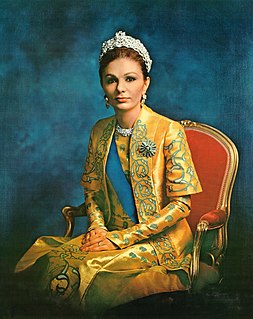A Quote by Salman Rushdie
The West sees Iran as an important force in the gulf.
Related Quotes
Nima Shirazi's is an important progressive voice in the Iran debate in the West, often deconstructing the myths (and sometimes propaganda) we commonly encounter in the mainstream media. With succinct and elegant prose, and with no axe to grind, he exposes the hypocrisy of Western attitudes toward Iran.
By accident of geography, the world's major oil resources are in Shi'ite-dominated areas. Iran's oil is concentrated right near the gulf, which happens to be an Arab area, not Persian. Khuzestan is Arab, has been loyal to Iran, fought with Iran not Iraq during the Iran-Iraq war. This is a potential source of dissension. I would be amazed if there isn't an attempt going on to stir up secessionist elements in Khuzestan.
Mr. Assad is not going to be able to feel like there is a moderate opposition that actually threatens him. Currently, the Assad government looks out at the landscape, sees the rise of ISIS, sees that much of the rebel force has become largely Islamist, and then turns to the West and says, well, you know, they look toward the West and say, well, look, what you have is a terrorist group that's fighting against us. So in this context, I think, to talk about moderate opposition being created to put pressure on Damascus is rather illusionary.
Even as we implement the nuclear deal and welcome our Americans home, we recognize that there remain about differences between the United States and Iran. We remain steadfast in opposing Iran's destabilizing behavior elsewhere, including its against Israel and our Gulf partners and its support for violent proxies in places like Syria and Yemen.



































